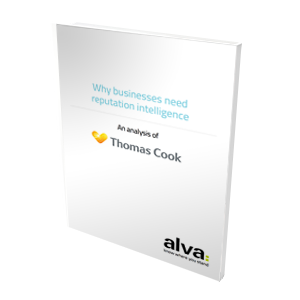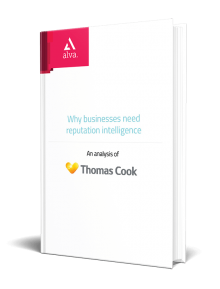White paper: Why businesses need reputation intelligence
With growing evidence that reputation does affect financial value, Boards need to be more proactive in sanctioning enterprise-wide reputation programmes to ensure that this invaluable asset is managed correctly. A reluctance to act puts companies at risk of reputation crises.
 Thomas Cook is one company that has a particularly challenging year, with a number of incidents that have led to an increase in negative sentiment and reputational damage.
Thomas Cook is one company that has a particularly challenging year, with a number of incidents that have led to an increase in negative sentiment and reputational damage.
This white paper uses Thomas Cook to investigate the following issues:
- What impact, if any, did the incidents have on stakeholder perceptions of Thomas Cook?
- Did the reputational damage suffered by Thomas Cook result in a loss of financial value?
- What is the link between reputation and financial value (as expressed by share price)?
- How can companies be proactive in protecting themselves against reputational damage?
- Which functions should be involved in building reputation resilience within the organisation?
These questions are particularly pertinent to organisations which are both seeking to understand the true impact of reputation on company performance, as well as those that are looking for guidance in implementing best practice solutions for reputation management.
Download the full report to discover more about the business benefits of reputation intelligence.





